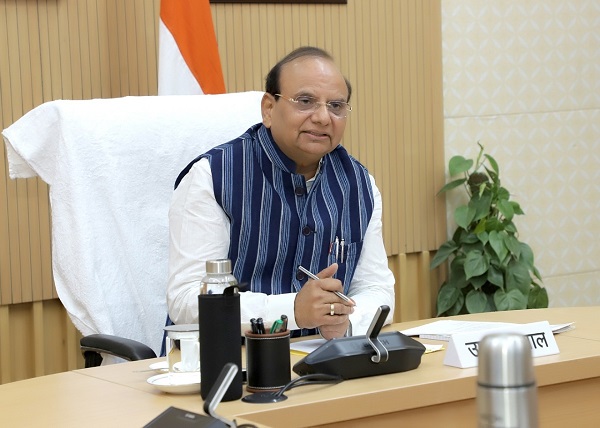New Delhi, (Samajweekly) Nobody residing at a location related to infrastructure for the G20 Summit should be removed in a “callous and inhuman manner” and without being provided the required assistance, Delhi Lieutenant Governor V.K. Saxena said on Thursday while chairing a meeting to review the preparations in the run-up to the forthcoming G-20 Summit.
Saxena chaired the meeting with Social Welfare Minister Raaj Kumar Anand. Held after the entire schedule of events to be organised in the national capital had been finalised, the meeting aimed at taking stock of works undertaken till now and reviewed the future action plan presented by the various stakeholders.
Chief Minister Arvind Kejriwal and other ministers, who were supposed to be present in the meeting, which included several stakeholder departments and agencies, could not attend the same.
A total of 26 departments are working with specific tasks assigned to them, of which 24 submitted their action plans for consideration of the meeting. Railways and CPWD, which did not come up with their action plans, were directed to submit the same within the next one week.
After the L-G insisted that nobody should be removed in a callous and inhumane manner, the Delhi Urban Shelter Improvement Board (DUSIB) informed that the work is being done in coordination with the land-owning agencies and any relocation will happen only after adequate notice and provision of required alternate space and facilities are provided.
The Municipal Corporation of Delhi (MCD) was instructed to scrupulously stick to garbage disposal and ensure that footpaths and pedestrian subways are not illegally occupied apart from maintaining their cleanliness in the long run.
The Tourism Department has also been asked to come up with the detailed plan of action with regard to availability of hotel rooms, guest houses etc., in view of the fact that around 1 lakh visitors are expected to visit Delhi during the Summit.
Decisions were also taken to ensure hassle-free and seamless movement of passengers at airports, railway stations and ISBTs, apart from training of Uber drivers and making their payment portals compatible to debits through international credit cards, since most visitors have access to the Uber app and use credit cards.









